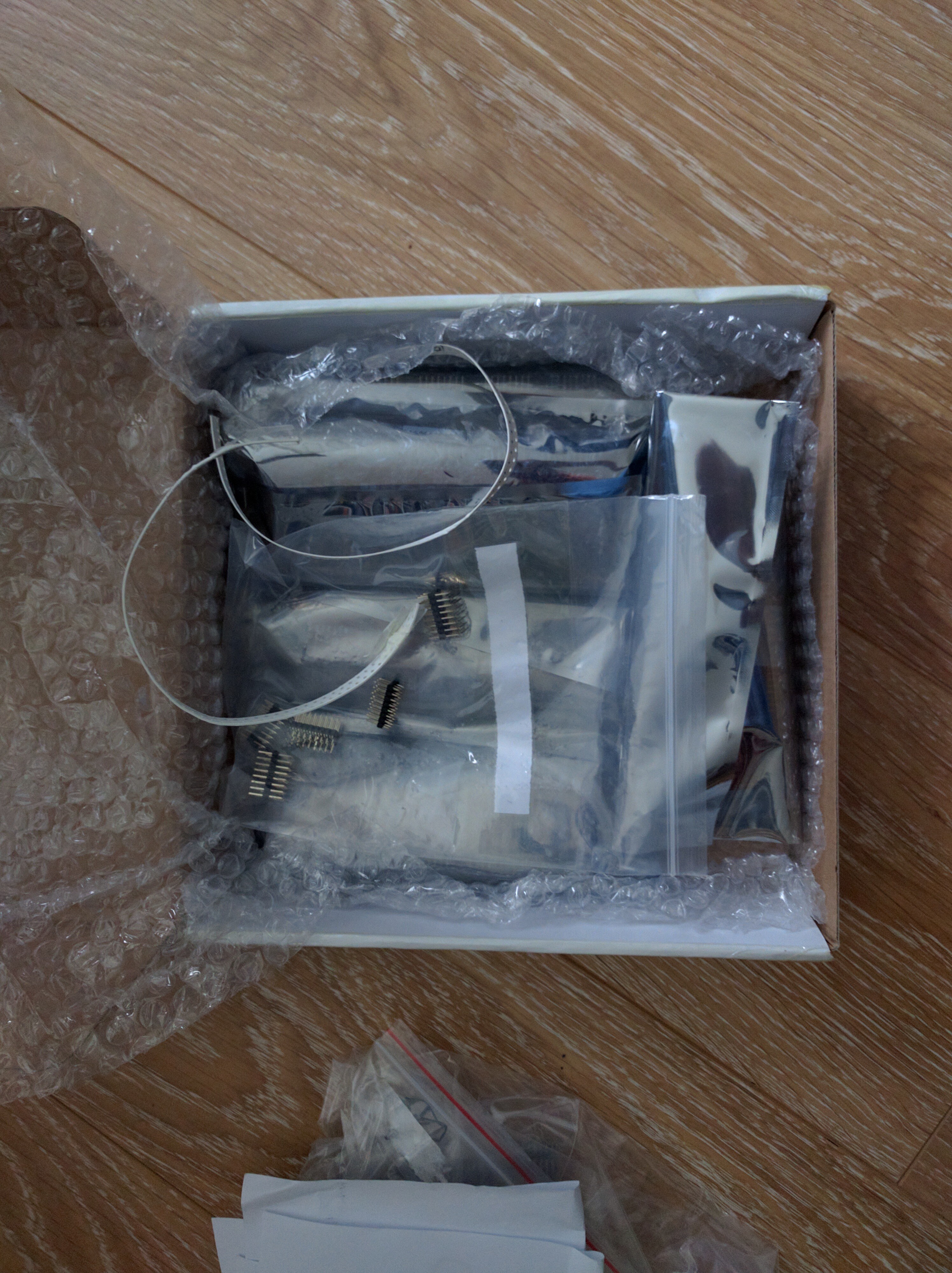Fabrication and Version 2.0¶
Published on 2017-12-04 in Servo Breakout for WeMos D1 Mini.
There is a relatively high demand for this board on Tindie, so when I sold the last of the 75 hand-assembled modules, I stated looking at fabrication options. Unfortunately, for a board with so many soldering points (the servo socket headers), it was relatively expensive. I didn’t realize that the work I was doing by hand is worth so much. In any case, I asked several fabrication services for quotes, and since I didn’t want to increase the price too much, went with the cheapest one, which turned out to be PCBWay.
They were very helpful all along the way. The bill of materials CSV file I sent them didn’t parse quite well for them (probably because I wrote it by hand in Vim), but they had no problem with me just including an ASCII-art table in the e-mail instead. On every step of the process they sent me photos, asking if it looks correct. They also tried to catch possible errors themselves: for example, my BOM didn’t include the stacking headers that I add to every module — they saw them in the photo and asked if they need to be added. (I send them unsoldered, so I add them later myself). There was also one small glitch when they initially wanted to use straight pin headers instead of angled ones, but because they sent me the photo I could point out the mistake, and there was no problem switching to the correct headers.
I choose the cheapest shipping (again to keep the price low), but it still arrived without problems in 2 weeks. Here’s a photo of the package I got:

The anti-static bags on the bottom contain the soldered panels (I choose to depanelize them myself, again to save costs). The rest of the bags are all the left-over parts, including one unsoldered PCB panel of 5 modules.
A quick test shows that the modules work very well.
All in all, I’m very happy with them. You can buy the new modules on Tindie here: https://www.tindie.com/products/deshipu/16-channel-servo-shield- for-d1-mini-version-20
 deshipu.art
deshipu.art